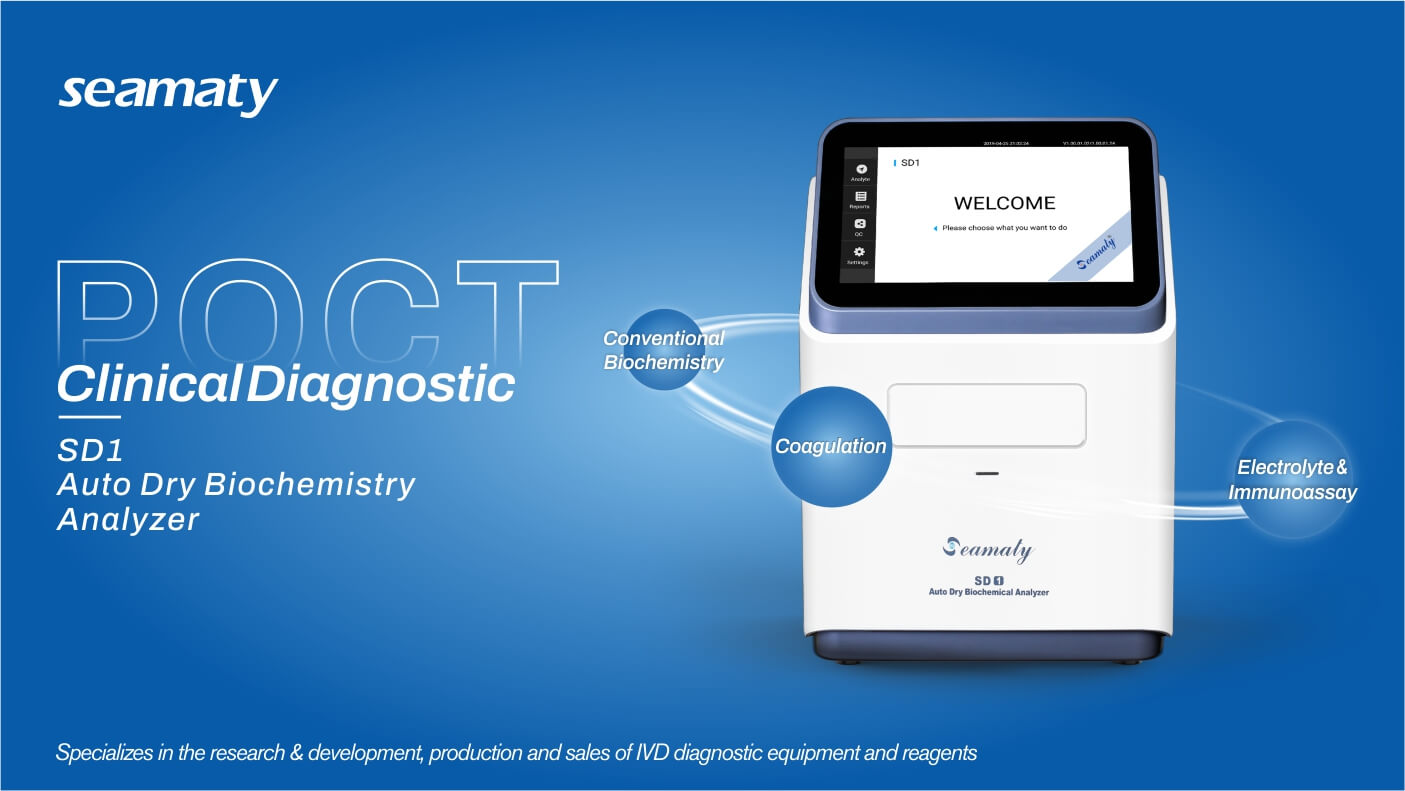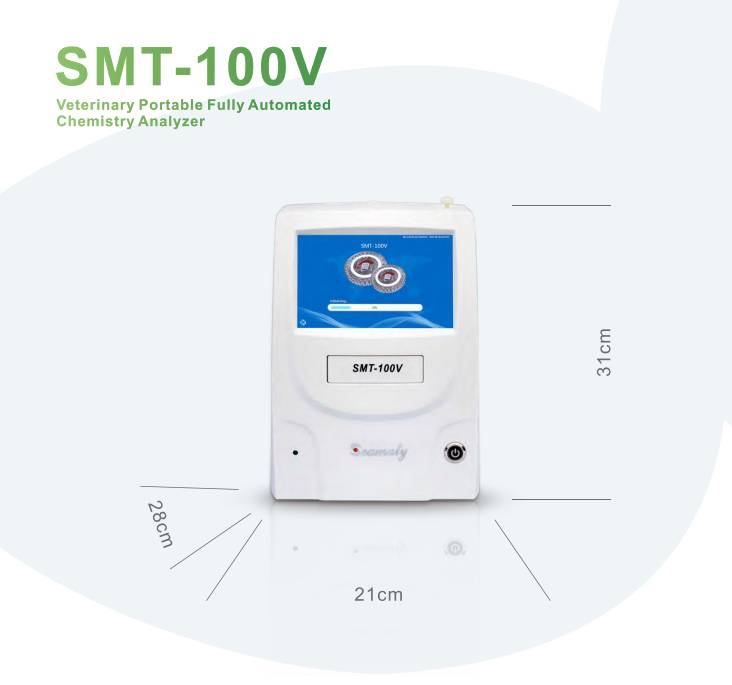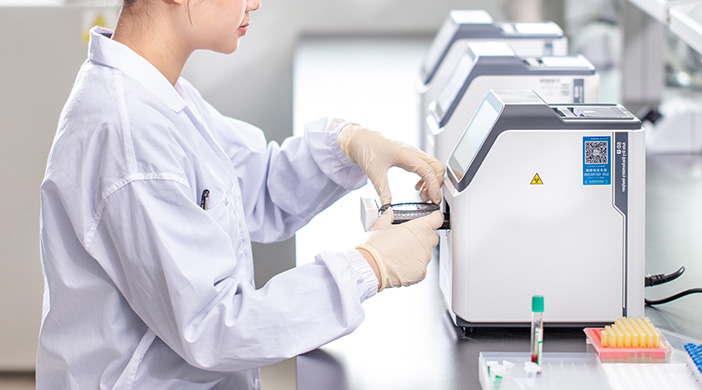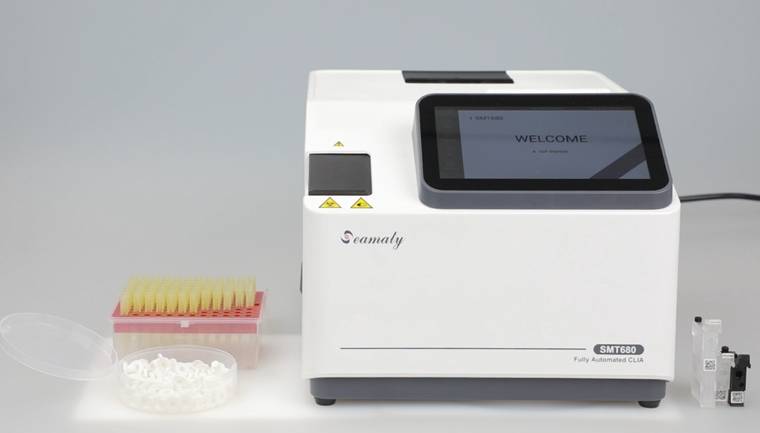release time:2023-06-14 11:40:57
In today's fast-paced healthcare landscape, accurate and timely diagnostic testing plays a crucial role in patient care. Clinical laboratory analyzers have become indispensable tools in the medical field, enabling healthcare professionals to obtain vital information for diagnosis, monitoring, and treatment. This comprehensive guide will delve into the world of clinical laboratory analyzers, exploring their types, functionalities, and their impact on accurate diagnostics.

Clinical laboratory analyzers are sophisticated instruments designed to analyze various biological samples, including blood, urine, and other body fluids. These analyzers enable medical professionals to assess key parameters such as blood cell counts, biochemical components, immune system markers, and genetic material. By providing precise and reliable results, these analyzers assist in the identification and management of diseases, helping healthcare providers make informed decisions about patient care.
A. Hematology analyzers:
Hematology analyzers are primarily used to analyze blood samples. They provide crucial information about the cellular components of blood, such as red blood cells, white blood cells, and platelets. By measuring parameters like hemoglobin levels, hematocrit, and cell morphology, hematology analyzers aid in diagnosing and monitoring conditions such as anemia, infections, and blood disorders.
B. Immunology analyzers:
Immunology analyzers are instrumental in assessing immune system-related markers. These analyzers detect and measure antibodies, antigens, and other immune system components, helping in the diagnosis of autoimmune diseases, allergies, and infectious diseases. They enable healthcare providers to understand the body's immune response and develop appropriate treatment strategies.
C. Chemistry analyzers:
Clinical chemistry analyzers play a vital role in analyzing biochemical components in body fluids. They measure parameters like blood glucose, liver and kidney function, lipid profiles, electrolyte levels, and more. By providing valuable insights into a patient's metabolic and organ function, chemistry analyzers assist in the diagnosis and management of various conditions, including diabetes, liver disease, and cardiovascular disorders.
D. Microbiology analyzers:
Microbiology analyzers are employed in identifying and characterizing microorganisms. These analyzers can perform culture and sensitivity testing to determine the presence of bacteria, fungi, or viruses in clinical specimens. They aid in the timely diagnosis and appropriate treatment of infections, ensuring effective patient care.
E. Molecular analyzers:
Molecular analyzers are used to detect and analyze genetic material, such as DNA and RNA. These analyzers play a crucial role in molecular diagnostics, including DNA sequencing, genotyping, and gene expression analysis. They enable precise identification of genetic variations, mutations, and infectious agents, contributing to personalized medicine and targeted therapies.
Clinical chemistry analyzers employ a series of complex processes to analyze biochemical components in body fluids. These analyzers consist of essential components such as reagent systems, sample handling mechanisms, and analytical techniques. The reagent systems contain specific chemicals that react with the target analytes in the sample, generating measurable signals. Sample handling mechanisms ensure precise measurement of small sample volumes and proper mixing of samples with reagents. Analytical techniques, including spectrophotometry and immunoassays, enable the detection and quantification of analytes in the samples.
Chemistry analyzers offer a wide range of tests, providing valuable information about a patient's overall health status. Common tests performed by these analyzers include blood glucose, liver function tests (such as ALT, AST, and bilirubin), kidney function tests (such as creatinine and blood urea nitrogen), lipid profile (including cholesterol and triglycerides), electrolyte levels (such as sodium, potassium, and calcium), and many more. These tests help in the early detection of diseases, monitoring treatment effectiveness, and adjusting medication dosages.
Among the many chemistry analyzers available in the market, the Seamaty SD1 clinical chemistry analyzer stands out as a top choice for laboratories. The Seamaty SD1 is a fully automated chemistry analyzer designed for on-site testing. With its advanced features and user-friendly interface, it simplifies the diagnostic process. This analyzer requires only 0.1cc of whole blood, serum, or plasma, enabling fast and accurate medical diagnosis.
The Seamaty SD1 utilizes cloud computing, allowing operators to make medical decisions remotely. It includes a built-in centrifuge for sample preparation, QR code scanning for easy sample identification, and real-time quality control to ensure accurate results. With a quick turnaround time of just 12 minutes, this portable and easy-to-use analyzer is ideal for small to mid-sized laboratories. And here is a list of top 9 clinical chemistry analyzers in 2023.
Clinical laboratory analyzers are indispensable tools in modern healthcare, enabling accurate and timely diagnostic testing. With different types of analyzers available, including hematology analyzers, immunology analyzers, chemistry analyzers, microbiology analyzers, and molecular analyzers, healthcare professionals have a wide range of options to cater to various diagnostic needs. Chemistry analyzers, in particular, play a crucial role in analyzing biochemical components and providing valuable insights into a patient's health status. The Seamaty SD1 clinical chemistry analyzer stands out as an advanced and efficient option, facilitating rapid and accurate diagnostics. By harnessing the power of clinical laboratory analyzers, healthcare providers can deliver precise and personalized care, improving patient outcomes and well-being.


2022-09-28
Since October 2015, Seamaty's first product, the veterinary biochemistry analyzer SMT100V, was presented at the 74th CMEF Expo in China. This marked the official entry of Seamaty's biochemical diagnostic products into the domestic and international pet medical market.

2022-04-21
According to the type of chemical reaction, chemistry analyzers can be roughly divided into dry chemistry analyzers and wet chemistry analyzers. Wet chemistry analyzers are the large, fully automated chemistry analyzers that we commonly see in hospitals.

2021-11-10
Blood is the most common sample used in medical testing, as it is the most readily available and effective sample for monitoring body conditions. Many fully automated analyzers have been developed based on blood sample testing. Such as chemiluminescent immunoassay analyzers, fully automated biochemical analyzers, etc. Blood samples on the machine before the processing of good or bad has a vital role in the detection of results.